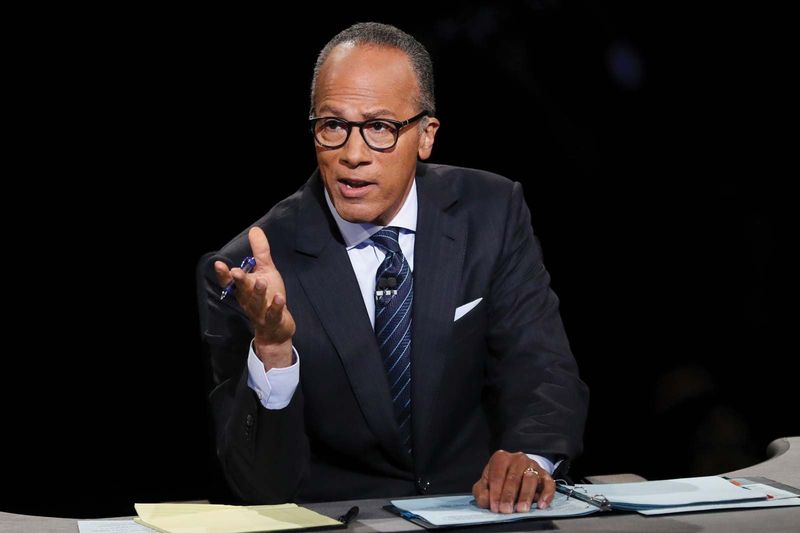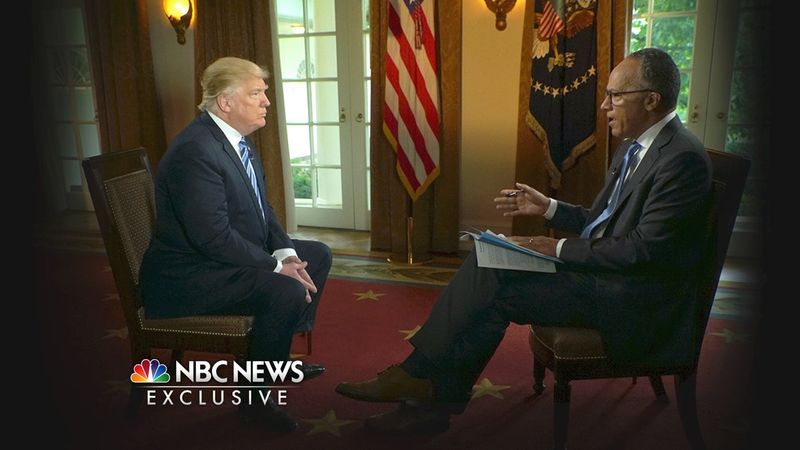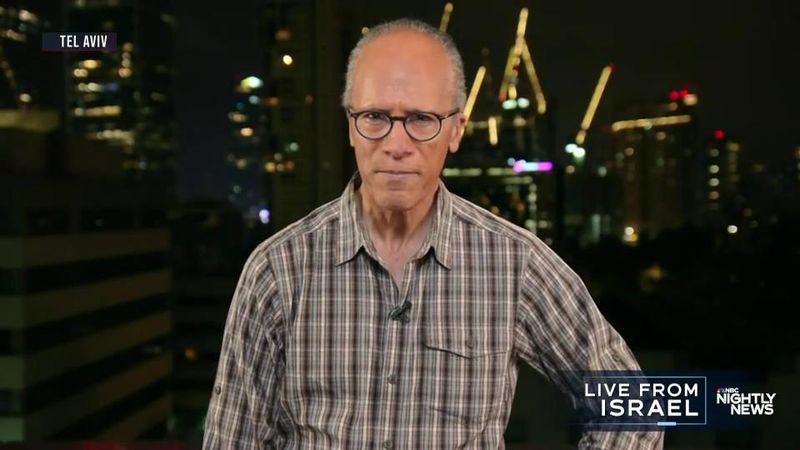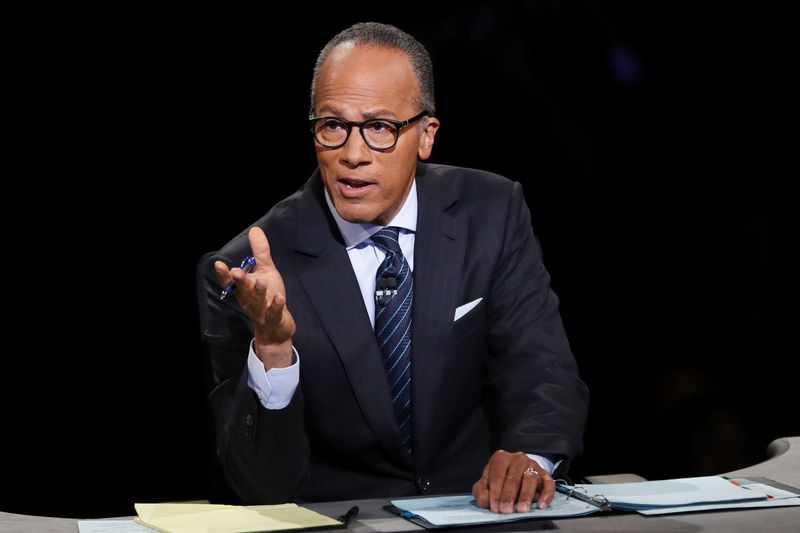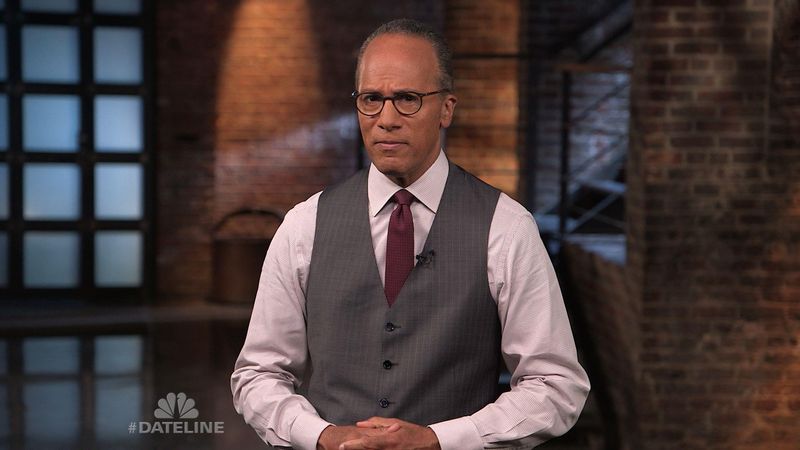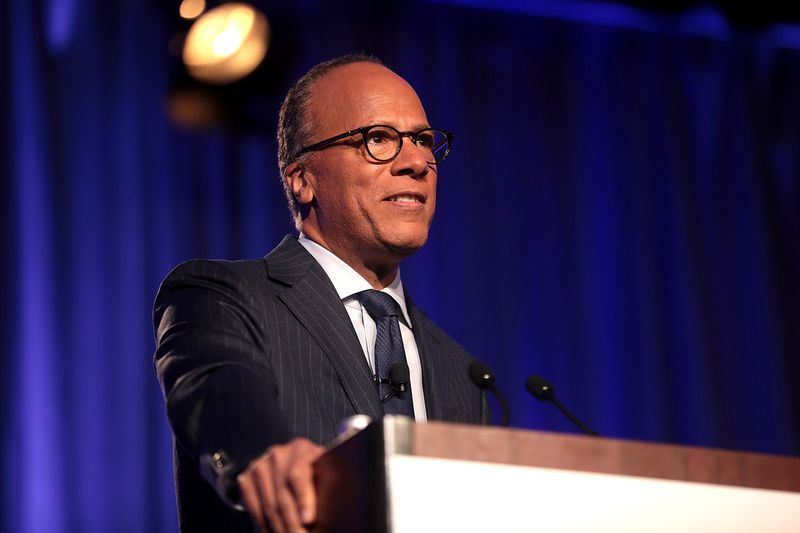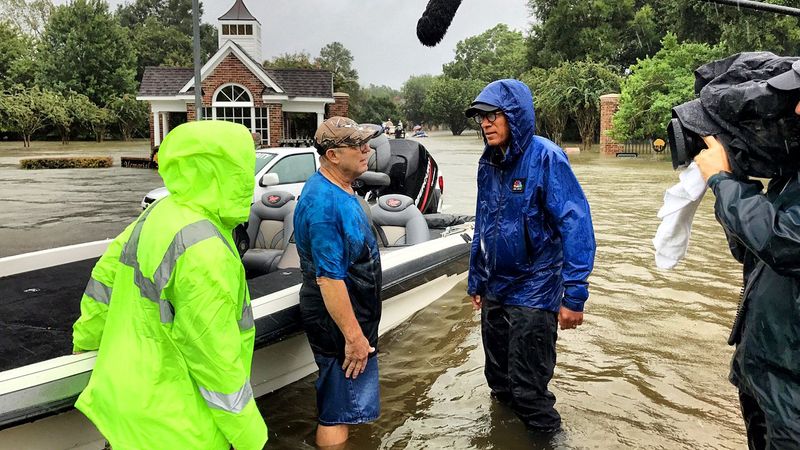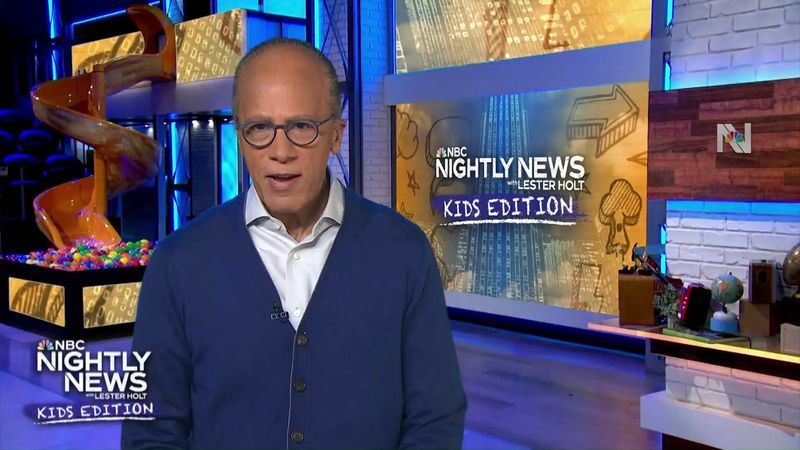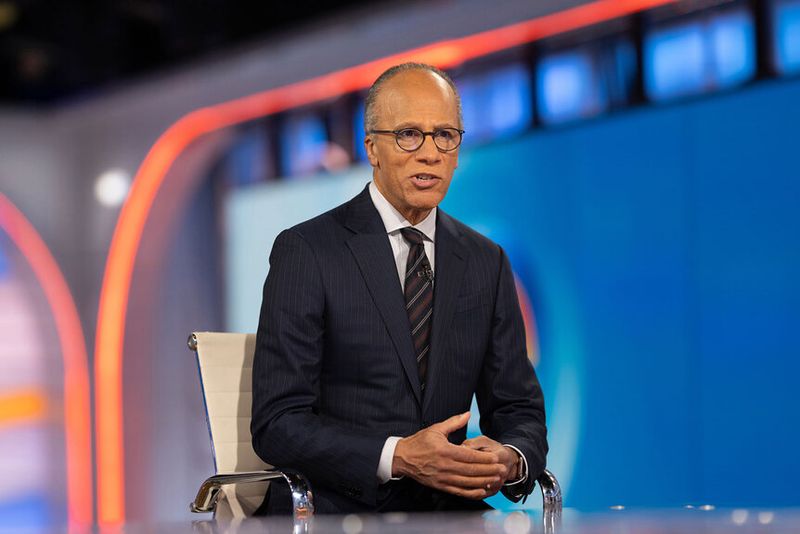Lester Holt has been a defining voice in American journalism for decades. As the anchor of NBC Nightly News since 2015, he’s guided viewers through historic events with steadiness and integrity. Before his upcoming departure from the anchor desk, let’s look back at fifteen standout moments that shaped his remarkable career.
1. A Historic Appointment
June 2015 marked a watershed moment in television history when Lester Holt became the first Black journalist to permanently anchor a major network’s weeknight news broadcast. His appointment wasn’t just personal achievement – it represented a significant milestone for diversity in media.
Stepping into the role during a tumultuous period, Holt brought his characteristic calm and gravitas to the position. NBC’s decision came after Brian Williams’ departure, with executives recognizing Holt’s journalistic credentials and viewer trust.
The historic nature of his appointment wasn’t lost on industry observers or viewers, who celebrated this long-overdue breakthrough in network news leadership.
2. Navigating the COVID-19 Pandemic
When COVID-19 upended global life in 2020, Holt’s steady presence became a nightly constant for millions of anxious Americans. Broadcasting initially from his home, he exemplified journalism’s essential role during crisis.
His straightforward delivery of complex health information and evolving guidelines provided clarity amid confusion. Rather than sensationalizing, Holt contextualized the pandemic’s impact through personal stories and expert interviews.
“We’re all in this together” became more than a catchphrase through his coverage. Holt’s pandemic reporting demonstrated how trusted journalists serve as vital connectors between public health officials and everyday citizens navigating unprecedented circumstances.
3. Capitol Riot Coverage
January 6, 2021 tested American democracy and journalism alike. As rioters stormed the Capitol, Holt’s broadcast struck a tone that matched the gravity of the moment – solemn, direct, and unflinching.
“What we witnessed today was not dissent—it was disorder,” he told viewers that evening. His careful word choice acknowledged the historical weight of the events while avoiding inflammatory language that could further divide his audience.
Broadcasting live as the situation unfolded, Holt maintained composure while clearly communicating the constitutional crisis at hand. His coverage that day exemplified journalistic responsibility during moments when democracy itself hangs in the balance.
4. The Trump Interview
May 2017 delivered what many consider Holt’s most consequential interview when he sat down with President Donald Trump. The conversation yielded an unexpected admission regarding FBI Director James Comey’s firing that dominated headlines for weeks.
“I was going to fire regardless of recommendation,” Trump told Holt, contradicting the White House’s official explanation. This moment showcased Holt’s interviewing skill – asking direct questions while giving subjects space to respond fully.
Media critics praised Holt’s balanced approach – neither combative nor deferential. The interview demonstrated how preparation and patience could yield journalistic results more effectively than confrontation, establishing a template for presidential interviews in polarized times.
5. Boots on the Ground
Unlike many network anchors who rarely leave the studio, Holt frequently reported from conflict zones and disaster areas. His on-location broadcasts from Ukraine during the Russian invasion brought the war’s reality directly to American viewers.
Broadcasting from Tehran in 2016, he became the first American network anchor to report from Iran following the nuclear deal. These journeys weren’t mere photo opportunities – they reflected his commitment to firsthand reporting.
“You can’t truly understand a story until you’ve walked the ground,” Holt often remarked. This philosophy distinguished his tenure, reminding viewers and colleagues alike that journalism requires presence and proximity, not just analysis from afar.
6. Presidential Debate Moderator
September 26, 2016 placed Holt in perhaps journalism’s most challenging role – moderating the first presidential debate between Hillary Clinton and Donald Trump. With 84 million viewers watching, he faced intense scrutiny from both political camps.
His preparation was meticulous, studying policy positions and anticipating evasions. When candidates strayed from facts, Holt interjected with corrections without becoming the story himself – a delicate balance few moderators achieve.
The Commission on Presidential Debates praised his performance for maintaining focus on substantive issues. This high-pressure assignment demonstrated Holt’s ability to remain composed under extraordinary circumstances while upholding journalistic standards on democracy’s biggest stage.
7. Stories of Hope
“Inspiring America” became Holt’s signature segment, showcasing everyday heroes making extraordinary differences. These stories offered viewers emotional respite from often challenging headlines.
Following Hurricane Maria’s devastation in Puerto Rico, Holt highlighted local volunteers rebuilding communities when government aid faltered. During the pandemic, he featured healthcare workers and community organizers creating solutions amid overwhelming challenges.
Colleagues noted how personally invested Holt became in these segments. “These aren’t just feel-good stories – they’re reminders of our capacity for goodness,” he once explained. By consistently making space for hope within the broadcast, Holt acknowledged journalism’s responsibility to reflect humanity’s full spectrum, not just its darkest moments.
8. Transition to Dateline
Long before his Nightly News tenure, Holt established himself as Dateline NBC’s trusted voice. His investigative instincts found perfect expression in the program’s in-depth format, allowing him to explore stories beyond headline coverage.
Particularly notable were his criminal justice investigations that helped exonerate wrongfully convicted individuals. His 2012 report on problematic eyewitness testimony led to concrete reforms in several states’ court procedures.
Even while anchoring Nightly News, Holt maintained his Dateline connection. This dual role highlighted his versatility – equally effective delivering breaking news in short segments and exploring complex narratives over full episodes, a rare combination in broadcast journalism.
9. Newsroom Mentor
Behind the cameras, Holt cultivated a reputation as an exceptional mentor to young journalists. NBC staffers frequently describe how he’d review their scripts, offering constructive feedback without undermining confidence.
“He treats the newest production assistant with the same respect as network executives,” noted one colleague. This leadership style fostered loyalty throughout the newsroom while developing the next generation of reporters.
Female and minority journalists particularly benefited from his guidance. Having navigated his own path through an industry historically lacking diversity, Holt created opportunities and removed obstacles for others. This behind-the-scenes legacy may ultimately prove as significant as his on-air contributions.
10. The Bass-Playing Anchor
Few viewers realized the serious newsman moonlighted as an accomplished bassist. Holt’s musical passion offered rare glimpses into his personality beyond the anchor desk, humanizing the journalist millions welcomed into their homes nightly.
Occasionally performing with The Roots on The Tonight Show, Holt demonstrated impressive skills developed since childhood. His bass collection became legendary among NBC staff, with vintage instruments carefully maintained in his office.
Music provided essential balance to journalism’s intensity. “Playing bass clears my head after covering difficult stories,” he once explained. This personal passion revealed Holt’s depth beyond his professional persona – a man who processed world events not just through journalism, but through artistic expression.
11. Champion for Media Diversity
Throughout his career, Holt leveraged his platform to advocate for greater representation in newsrooms. His speeches at journalism schools emphasized how diverse perspectives strengthen reporting accuracy and relevance.
Action accompanied his words. Holt implemented mentorship programs specifically supporting journalists from underrepresented backgrounds. When selecting field producers and correspondents, he consistently created opportunities for talent that might otherwise be overlooked.
“Journalism can’t effectively serve diverse communities without reflecting those communities,” became his rallying call. As the first Black solo anchor of a major network newscast, Holt understood his responsibility extended beyond personal achievement to creating pathways for others – a mission he pursued with quiet determination.
12. Disaster Zone Reporter
When Hurricane Harvey devastated Houston in 2017, Holt waded through floodwaters to document rescue efforts. This hands-on approach typified his disaster coverage throughout his career – present in communities when they faced their darkest hours.
From California wildfires to Midwest tornadoes, Holt consistently brought national attention to local catastrophes. His coverage balanced immediate crisis reporting with examination of preparedness failures and recovery challenges.
Emergency management officials noted how his responsible reporting saved lives by communicating evacuation information clearly. Beyond immediate coverage, Holt frequently returned to disaster zones months later when other media had moved on, highlighting ongoing recovery challenges and holding officials accountable for rebuilding promises.
13. Connecting with Young Viewers
Recognizing journalism’s future depends on engaging younger audiences, Holt pioneered “Nightly News Kids Edition” during the pandemic. This innovative program translated complex events into age-appropriate content without condescension.
College campus visits became regular fixtures in Holt’s schedule, where he challenged journalism students to maintain ethical standards in a changing media landscape. His Instagram account strategically balanced professional content with personal glimpses, building connection with digital natives.
“If we don’t reach young people, we’re failing journalism’s future,” he frequently reminded colleagues. This forward-thinking approach distinguished Holt from predecessors who primarily focused on traditional audiences, demonstrating his understanding that news delivery must evolve while maintaining journalistic principles.
14. Defender of Facts
“Fairness is overrated,” Holt provocatively stated in a 2021 speech that captured his journalistic philosophy. “Before you run off and tweet that headline, listen to the rest: The idea that we should always give two sides equal weight is absurd.”
This bold stance articulated his commitment to truth over false equivalency. When reporting on climate change, vaccines, or election results, Holt refused to present established facts as debatable opinions.
Critics occasionally labeled this approach partisan, but colleagues defended his careful distinction between political perspectives and factual reality. His editorial decisions reflected a fundamental belief that journalism’s primary obligation is accuracy, even when truth proves uncomfortable – a principle increasingly rare in modern media.
15. A Memorable Sign-Off
May 30, 2025 will mark Holt’s final broadcast after a decade anchoring NBC’s flagship news program. Though this moment lies in the future, colleagues already anticipate an emotional farewell reflecting his journalistic values.
Throughout his career, Holt resisted making himself the story. His planned departure follows this pattern – announced with characteristic humility and emphasis on journalism’s continued importance rather than personal legacy.
The anticipated sign-off phrase – “Please continue to take care of yourself and each other, and I’ll do the same” – encapsulates his approach to news: recognizing shared humanity amid divisive times. This final broadcast will undoubtedly celebrate not just a career, but a model of journalistic integrity for future generations.

